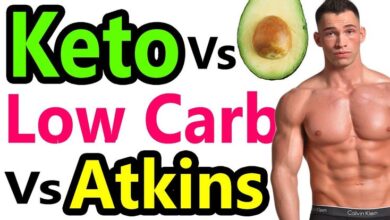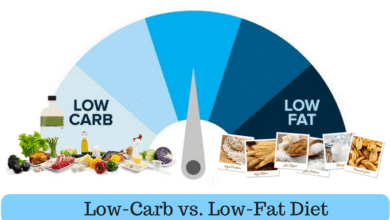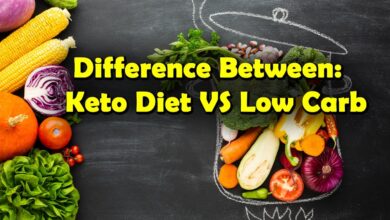
Endurance sports—whether it’s marathon running, triathlons, cycling across states, or long-distance swimming—demand more than just physical training. Nutrition is the true engine that powers performance. Traditionally, athletes have relied on carb-heavy diets for fuel. Think pasta parties before marathons or carb-loading sessions before a race. But in recent years, a surprising shift has emerged: many endurance athletes are adopting the ketogenic diet.
Keto flips the script on conventional fueling by limiting carbs and prioritizing fat as the main energy source. For athletes, this means training the body to become a fat-burning machine, accessing nearly limitless energy stores while avoiding the dreaded “bonk” that often comes with carb depletion.
But is keto really sustainable for endurance athletes? And how do you design meal plans that optimize both performance and recovery? That’s exactly what this guide will uncover.
Read Also Keto Endurance for Runners: Low-Carb Training Plans That Work
The Science Behind Keto for Endurance Athletes
Before we dive into meal plans, it’s important to understand the science. The ketogenic diet typically consists of:
- 70–75% fat
- 20–25% protein
- 5–10% carbohydrates
When carbs are drastically reduced, the body enters ketosis, a metabolic state where fat is converted into ketones, which serve as an efficient alternative fuel source.
For endurance athletes, this has major implications:
- Fat as a Sustainable Fuel – Unlike glycogen, which depletes quickly, fat stores can last for hours (even days) of activity.
- Reduced Bonking – The infamous “wall” runners hit after glycogen depletion is less common in fat-adapted athletes.
- Improved Recovery – Keto reduces inflammation markers, meaning quicker recovery after grueling sessions.
Research also suggests that keto may enhance mental clarity, crucial during ultra-distance races where focus can determine success.
Benefits of Keto for Long-Distance Athletes
Switching to keto isn’t just about diet trends—it comes with measurable advantages:
- Stable Energy Levels: Say goodbye to mid-race crashes.
- Weight Optimization: Lower body fat percentage means better power-to-weight ratio.
- Metabolic Flexibility: The ability to switch between fat and glycogen when needed.
- Enhanced Endurance: Accessing fat stores provides long-term fuel for ultra-marathons and Ironman events.
- Reduced GI Distress: High-carb gels often upset stomachs during races; keto minimizes this.
Challenges of Keto for Athletes
Of course, keto isn’t without challenges:
- Adaptation Period (“Keto Flu”): Fatigue, headaches, and irritability during the first 1–2 weeks.
- Reduced High-Intensity Performance: Sprints and explosive bursts may feel sluggish without glycogen.
- Electrolyte Imbalance: Low carb intake can flush out sodium, magnesium, and potassium, requiring supplementation.
- Social and Practical Barriers: Eating keto-friendly meals on the go can be difficult.
The good news? With the right strategies and meal planning, these challenges can be overcome.
How to Transition to Keto Without Losing Performance
The transition to keto should be gradual:
- Reduce Carbs Slowly: Drop to 50–100g per day before going full keto.
- Prioritize Electrolytes: Salt food generously, and add magnesium and potassium supplements.
- Train Low, Race High: Do low-intensity training in ketosis but consider strategic carb intake before races.
- Be Patient: It may take 4–6 weeks to fully adapt.
Macronutrient Breakdown for Keto Endurance Athletes
Here’s a breakdown of how macros should look for endurance performance:
- Fat (70–75%): Avocado, olive oil, fatty fish, nuts, coconut oil.
- Protein (20–25%): Chicken, beef, eggs, whey isolate, salmon.
- Carbs (5–10%): Leafy greens, broccoli, zucchini, berries (timed around workouts).
Proven Keto Meal Plans for Endurance Athletes
1. Pre-Training Keto Fuel
- Keto Coffee (Bulletproof Style): Coffee blended with MCT oil and grass-fed butter.
- Avocado and Eggs: Packed with fat and protein for sustained release.
2. Mid-Training (Long Distance)
- Electrolyte Drinks: Sodium + potassium blends with stevia.
- Nut Butter Packs: Almond or macadamia nut butter on the go.
- Homemade Fat Bombs: Coconut oil + cocoa + almond flour.
3. Post-Training Recovery
- Grilled Salmon with Spinach and Olive Oil – High in omega-3s.
- Keto Protein Shake with Almond Milk – Supports muscle repair.
- Egg Omelet with Cheese and Avocado – Balanced fats and protein.
Weekly Keto Meal Plan for Endurance Athletes
Day 1
- Breakfast: Keto smoothie (spinach, avocado, protein powder).
- Lunch: Cobb salad with chicken, bacon, and olive oil dressing.
- Dinner: Grass-fed ribeye with roasted Brussels sprouts.
2
- Breakfast: Scrambled eggs with cheddar and avocado.
- Lunch: Salmon Caesar salad (no croutons).
- Dinner: Zucchini noodles with creamy alfredo and grilled chicken.
3
- Breakfast: Keto pancakes with almond flour and sugar-free syrup.
- Lunch: Turkey lettuce wraps with guacamole.
- Dinner: Baked cod with asparagus and butter sauce.
Hydration and Electrolyte Strategies
Electrolytes are crucial on keto. Without carbs, glycogen holds less water, meaning dehydration risk rises.
- Sodium: Add sea salt to meals.
- Magnesium: Supplement with 300–400mg/day.
- Potassium: Avocados, leafy greens, and supplements.
Keto-Friendly Snacks for Athletes
- Beef jerky (sugar-free)
- String cheese
- Boiled eggs
- Macadamia nuts
- Pork rinds
Supplements for Keto Endurance Performance
- MCT Oil – Quick energy source.
- Exogenous Ketones – Boost ketone levels before events.
- Electrolyte Powders – Prevent cramps.
- Omega-3 Fish Oil – Reduces inflammation.
- Creatine – Supports strength training alongside endurance.
Strategic Carb Cycling for Races
Not all keto athletes go zero-carb. Some use targeted keto:
- Small carb intake (20–40g) before high-intensity workouts.
- Carb “re-feeds” once a week to replenish glycogen.
This allows performance flexibility while staying mostly in ketosis.
Sample Shopping List for Keto Endurance Athletes
- Proteins: Salmon, grass-fed beef, eggs, chicken thighs.
- Fats: Avocados, coconut oil, butter, olive oil, ghee.
- Low-Carb Veggies: Spinach, kale, broccoli, zucchini, asparagus.
- Snacks: Almond butter, cheese sticks, nuts.
Success Stories: Athletes Thriving on Keto
- Zach Bitter (Ultrarunner): Set records while fat-adapted.
- LeBron James (Basketball): Used keto for weight management and endurance.
- Paula Newby-Fraser (Triathlete): Advocated fat-adapted training strategies.
These athletes prove that keto is not just a fad—it’s a legitimate performance tool.
Common Mistakes to Avoid
- Eating too much protein (knocks you out of ketosis).
- Ignoring electrolytes.
- Not allowing time for adaptation.
- Expecting high-intensity speed improvements immediately.
Is Keto Right for Every Athlete?
Keto works best for long-distance endurance sports. Sprinters, powerlifters, or athletes requiring explosive power may benefit less. That said, with proper carb timing, even hybrid athletes can thrive.
Conclusion
Keto for endurance athletes is more than a diet—it’s a performance strategy. By training your body to rely on fat, you gain a sustainable fuel source that supports long-distance success. The key is smart meal planning, electrolyte management, and patience during adaptation.
If you’re an athlete tired of bonking, struggling with GI issues, or looking for a new edge, keto might just be your golden ticket.
Read Also Keto Endurance: Low-Carb Fuel for Peak Athletic Performance and Stamina
FAQs
1. Can keto improve marathon performance?
Yes. Keto helps prevent energy crashes, but runners may need strategic carb intake before races for peak performance.
2. How long does keto adaptation take for athletes?
It usually takes 4–6 weeks to fully adapt and feel strong in endurance training.
3. Can I build muscle on keto while training for endurance?
Yes, but protein must be moderate, and strength training should complement endurance workouts.
4. Are keto gels available for racing?
Yes, several brands now offer low-carb, fat-based gels designed for endurance athletes.
5. Is keto safe for ultra-marathon runners?
Absolutely, provided electrolytes and hydration are carefully managed. Many ultra-runners thrive on fat-adapted strategies.





2 Comments